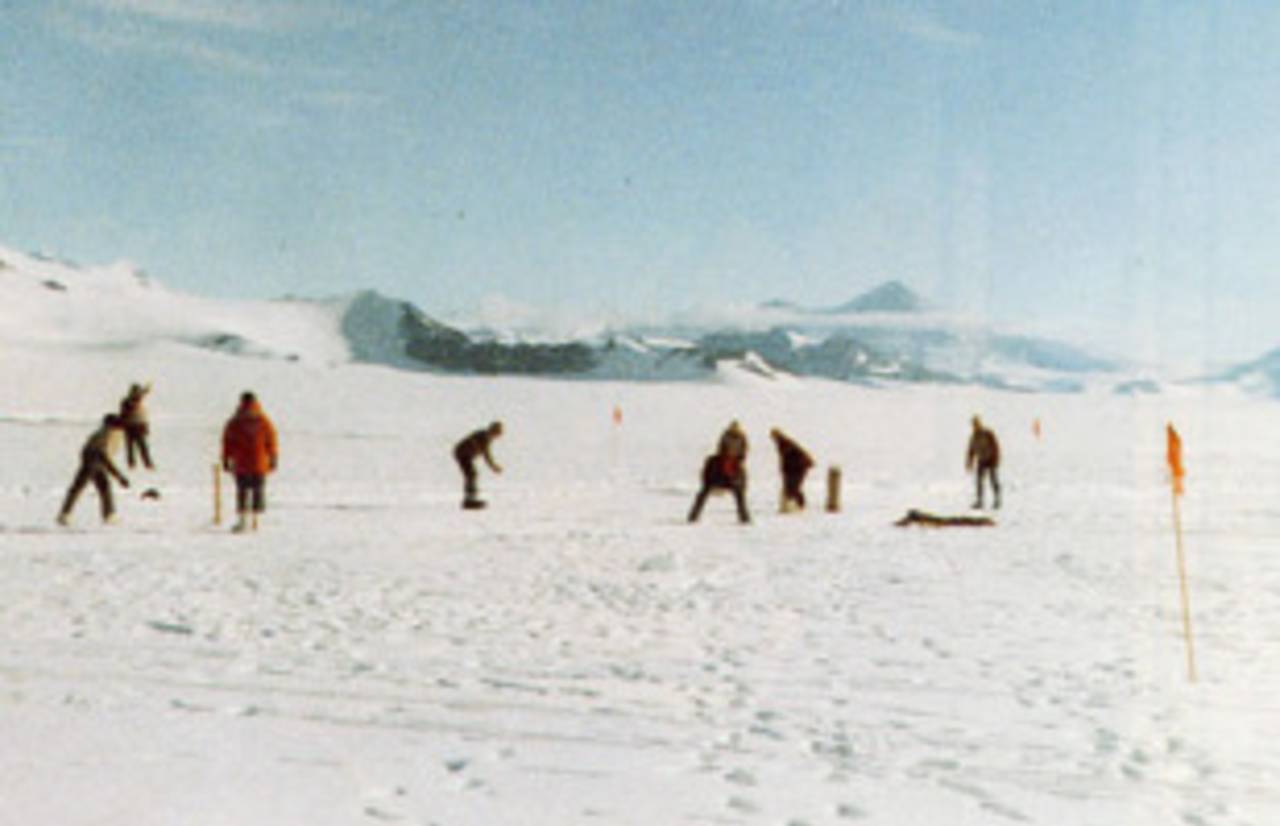Twenty-five years ago this month, one of cricket's most unusual - and almost certainly the most southerly - matches took place about 400 miles from the South Pole. The beer froze, the pitch was "rolled" by a plane, and the bails were beer cans. But it was a proper game and those who participated took it seriously enough.
The contest was the brainchild of Sir Arthur Watts, a British diplomat and cricket lover who had been good enough to play for Shropshire in the Minor County Championship in the 1950s.
In late 1984, 60 scientists, environmentalists, administrators and lawyers travelled to Antarctica for an international workshop on mineral rights. Watts, who was leading the UK delegation, spotted an opportunity to make history in between meetings.
With so many of the delegates coming from traditional cricket-playing countries, finding two sides was easy, even if they had to be supplemented with Argentines, Chileans and Americans. Watts then persuaded the New Zealand delegation to fly in a complete set of cricket equipment.
On January 11, 1985 the two teams assembled at a pitch next to a hutted field-camp set up by the United States Antarctic Field Programme on the Bowden Nevé, approximately 84 degrees south amid the Transantarctic Mountains. The pitch was the ski-track of a C130 Hercules aircraft - Watts later told the press the Hercules was "probably the heaviest roller ever used in the game". The bails were cans of beer, balanced on a board on which the stumps were blacked out in ink. Within minutes the beer froze in temperatures of around -12 degrees.
"The venue was chosen to give certain diplomats who were eloquently pontificating in the United Nations a taste of what the Antarctic was really like," recalled Sir Martin Holdgate, the president of the British Zoological Society, who stood in as the umpire. His main gripe was that his own can of beer also froze. A tennis rather than a cricket ball was used as there was a concern a heavier ball would sink into the snow, and traditional whites, aside from being close to camouflage, were eschewed in favour of warmer clothing.
Watts captained the Beardmore Casuals XIV, comprising largely Britons, against the Gondwanaland Occasionals XIV, made up of players from Australia, New Zealand and South Africa.
The Casuals batted first and made 102, the main contribution coming from Roger Wilson of Greenpeace who scored 22, including three sixes. Five of the batsmen were listed as "retired frozen".
Even though there was no issue with the light - Wisden noted play was able to go on until close to midnight in the Antarctic summer - by the time Gondwanaland Occasionals batted the pitch, which had initially taken spin, was misbehaving badly as the surface rutted and then froze.
Although eight of the Occasionals' batsmen also retired because of the cold, they made 129 to win the game. Trevor Hatherton, a New Zealand scientist, clubbed 24, the highest score of the day.
While the event got widespread publicity, there were two frustrations to follow for Watts who believed the game deserved a place in the record books. The first came when the Guinness Book of Records accepted it as the southern-most game ever played, but said that it was "too specialist" for inclusion.
The second was a report in some New Zealand newspapers which asserted that in 1969 former national captain John Reid had played a match actually at the South Pole itself, including a six "hit over the world itself" by Reid.
However, closer examination revealed Reid's game was little more than a knock-about with three colleagues - two other New Zealanders and Rear Admiral Kelly Welch of the US navy. The impromptu jolly ended almost before it started when the cricket ball "buried itself deep in the snow at mid-off".
Watts, a career diplomat whose obituaries almost all referred to his "unfailing courtesy and the warmth of personality" was clearly angered by comparisons to Reid's affair.
"This deplorable attempt to deprive our game of its status as a 'first' wholly ignores the difference between a four-man frolic and an organised match played between two full teams," he noted. "And, of course, we did not use a real cricket ball, since we foresaw what would happen if we did - a lost ball buried deep in the snow, as the four-man frolic quickly discovered."
The British Institute of International and Comparative Law is looking to establish The Watts Fellowship in Sir Arthur Watts' name. Click here for details. Is there an incident from the past you would like to know more about? Email rewind@cricinfo.com with your comments and suggestions.

